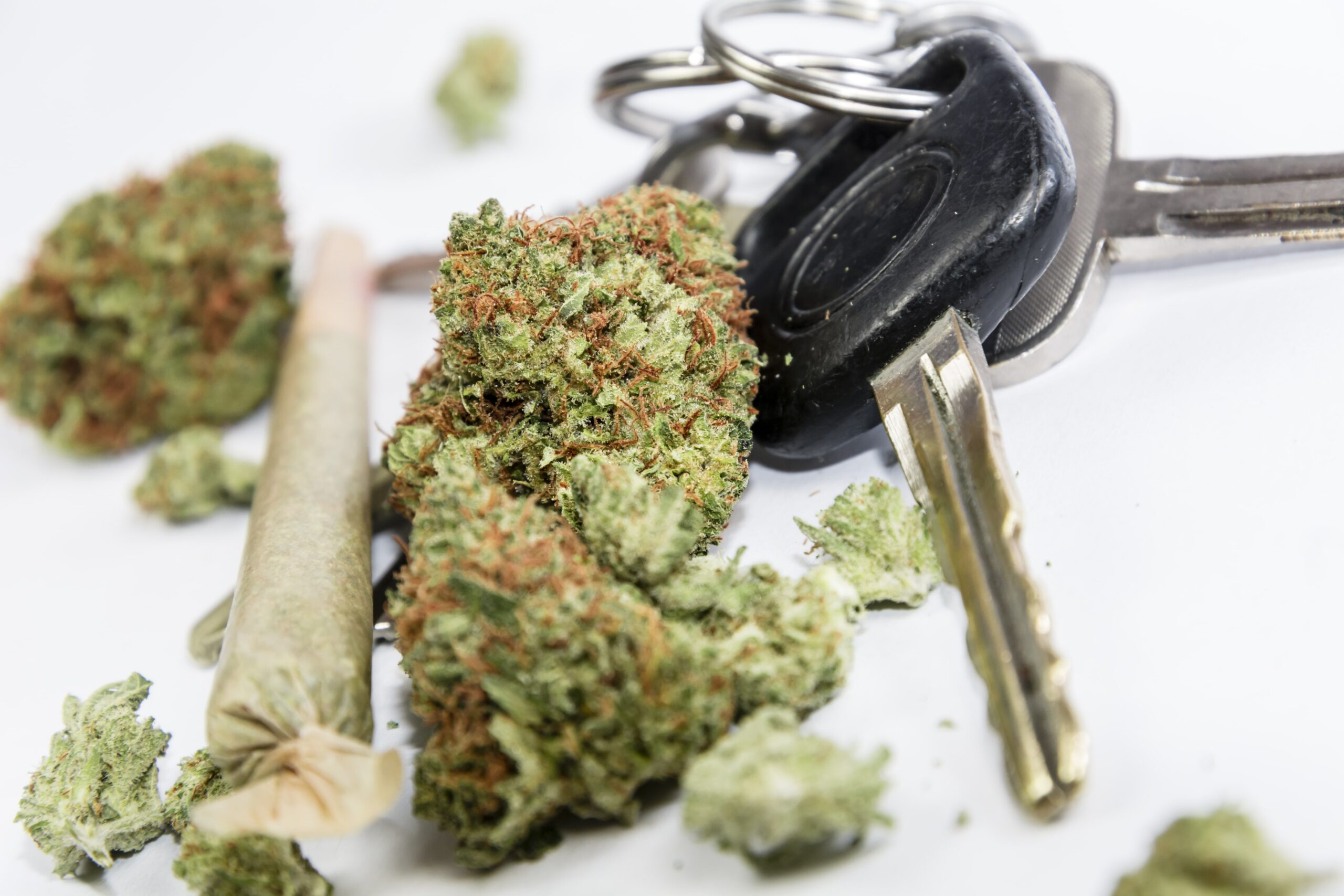Share This Article
Whilst it was previously thought that the defence of ‘honest and reasonable mistake of fact’ was available for offences of driving with an illicit substance in your system, a District Court Judge has ruled that this is not the case.
The defence of an honest and reasonable mistake of fact defence, whilst it is available for strict liability offences, it is not available for absolute liability offences.
The decision (Narouz v R [2023] NSWDC 293) ultimately held that the offence is one of ‘absolute liability’ and that all that needs to be proven is the presence of an illicit substance in a person’s oral fluid, blood, or urine.
Driving With an illicit Substance in your System | Drug Driving Offences in New South Wales
In New South Wales, you do not need to be impaired by drugs to be charged with a drug driving offence. This means that you can face penalties including a conviction, fines, and loss of licence, even where your driving is completely unaffected by the drug.
Section 111 of the Road Transport Act 2013 (NSW) provides that it is an offence to have an illicit substance in your system (i.e., in your saliva, blood, or urine) and drive a motor vehicle, or occupy the driving seat of a motor vehicle and attempt to put the motor vehicle in motion.
It is also applicable where you occupy the seat in a motor vehicle next to a learner driver who is driving the vehicle.
The prescribed illicit drugs referred to in the Act are cannabis (delta-9-tetrahydrocannabinol), speed (methylamphetamine), ecstasy (3,4-methylenedioxymethylamphetamine) and cocaine.
A maximum penalty of a conviction and fine of $2,200 is applicable for a first offence. It also carries an automatic licence disqualification for 6 months, which may be lowered to a minimum of 3 months, if the court thinks that it is suitable to order a shorter period.
In the case of a first offence, police may use their discretion to issue a penalty infringement notice of $603 instead of charging you. Payment of this fine does not result in a criminal record, however, it will result in a 3-month licence suspension of your driver licence.
For a second or subsequent offence, a maximum penalty of a conviction and a $3,300 fine is applicable. It will also carry an automatic licence disqualification for 12 months, which may be lowered to a minimum of 6 months, if the court deems this is suitable.
What is the Honest and Reasonable Mistake of Fact Defence?
In criminal proceedings, the prosecution is generally required to prove that you had the criminal intent (referred to as ‘mens rea’), and that you also committed the offending act(s), both being essential elements of a criminal offence. Failure to prove any one of those elements will result in the charge being dismissed by a court, thus resulting in an unsuccessful prosecution.
As for the criminal intent requirement- this can include that you had the intention to do the relevant conduct or cause a particular consequence, knowledge of the ‘wrongness’ of an act, that you were reckless as to causing certain consequences, or had wilful blindness.
However, some offences do not require the prosecution to prove that you had any criminal intent. These types of offences are called ‘strict liability’ offences.
A ‘strict liability’ offence is any offence where there is also no requirement to have a guilty mind.
Offences where there is no requirement of proving the criminal intent (‘mens rea’) will be ordinarily proven solely by establishing the offending conduct.
However, the defence of an ‘honest and reasonable mistake of fact’ has normally been available for such offences.
The honest and reasonable mistake of fact defence refers to circumstances in which a person will not be guilty of a criminal offence on the basis that they held an honest and reasonable belief, although mistaken, in a state of facts which, if they existed, would have made the accused person’s act ‘innocent’.
Examples of an honest and reasonable mistake of fact defence include where a person drives whilst suspended but is entirely unaware that their licence was suspended. They would need to demonstrate that they had an honest and reasonable belief that their licence was valid, including for reasons such as never receiving the suspension notice.
The accused person is required to raise the defence in evidence, with the prosecution then required to prove that they did not honestly hold such a belief or that it was not on reasonable grounds.
Whether it was reasonable will be assessed objectively. This defence only applies to mistakes as to facts, and not as to the law.
‘Absolute liability’ offences are another category in which there is no requirement to prove ‘mens rea’. However, the defence of an ‘honest and reasonable mistake of fact’ is not available for absolute liability offences.
Again, all that is required to be established for an absolute liability offence is the act constituting the offence.
What did the Case in Narouz v R [2023] Say?
The Decision of Narouz v R [2023] NSWDC 293 held that drug driving is an absolute liability offence.
Mina Narouz was convicted in the Local Court for the offence of driving with an illicit substance, being cocaine, in his system.
Narouz appealed his conviction to the District Court. He ultimately sought to argue that the defence of honest and reasonable mistake of fact was applicable to his circumstance.
Whilst his saliva had tested positive for cocaine, he claimed that he had not used cocaine since the year prior. During the Local Court hearing, he gave evidence that he had drunk out of a Gatorade or Powerade bottle which was on the floor of his friend’s vehicle that he was driving at the time, which might explain the presence of the drug.
Ultimately, District Court Judge Buscombe dismissed the appeal upon finding that driving with an illicit substance in your system is an ‘absolute liability’ offence, and the defence was not available.
This was determined through close reading of the relevant section. His Honour ultimately pointed to section 111(2)(b) which notes that: “the offence is proved if the court is satisfied beyond reasonable doubt that there was present in the oral fluid, blood or urine of the defendant” an illicit drug as described in the court attendance notice.
His Honour deemed that this left “no scope for the operation of an honest and reasonable mistake of fact to operate” and highlighted “a clear statement by the Parliament that the only matter that needs to be proved beyond reasonable doubt by the prosecution to prove the offence is the presence of a drug, referred to in the court attendance notice, in a defendant’s oral fluid, blood or urine.”
This interpretation of the section was also found to be consistent with the intended purpose of the offence, as described by the then Minister for Roads.
Justice Buscombe disagreed with prior findings that the defence was available, including reference to the case of NSW Police v Carrall [2016] NSWLC 4.
In this matter, Magistrate David Heilpern held that the defendant, Joseph Carrall, was able to raise the defence of honest and reasonable mistake.
Carrall was pulled over by was pulled over by Senior Constable Foster for a random drug test.
The officer asked the driver whether he’d taken any illicit drugs within the last 48 hours, to which Mr Carrall replied: “I had a smoke over a week ago.”
Foster took a sample of saliva, which tested positive for the presence of THC. Carrall was arrested and taken to the police station to be tested again, which also returned positive.
Notably, a month earlier Foster had also pulled Carrall over and who recorded a positive test then as well. Whilst he pleaded guilty to this incident, he defended the subsequent offence.
During the hearing, the Carrall gave evidence that when he was first arrested, Foster advised him: “if you had waited a week, you would have been fine.”
Callan claimed that he had relied on this statement before seeking to drive again, and Magistrate Heilpern held that the defendant honestly believed that the cannabis was no longer present in his system.
Justice Buscombe noted that if he had found that the defence was applicable to such offences, that he would have upheld Narouz’s appeal on the basis that it was open to raise an honest and reasonable mistake of fact as to the presence of the illicit drug cocaine, and that the prosecution had not negatived that belief beyond reasonable doubt.









